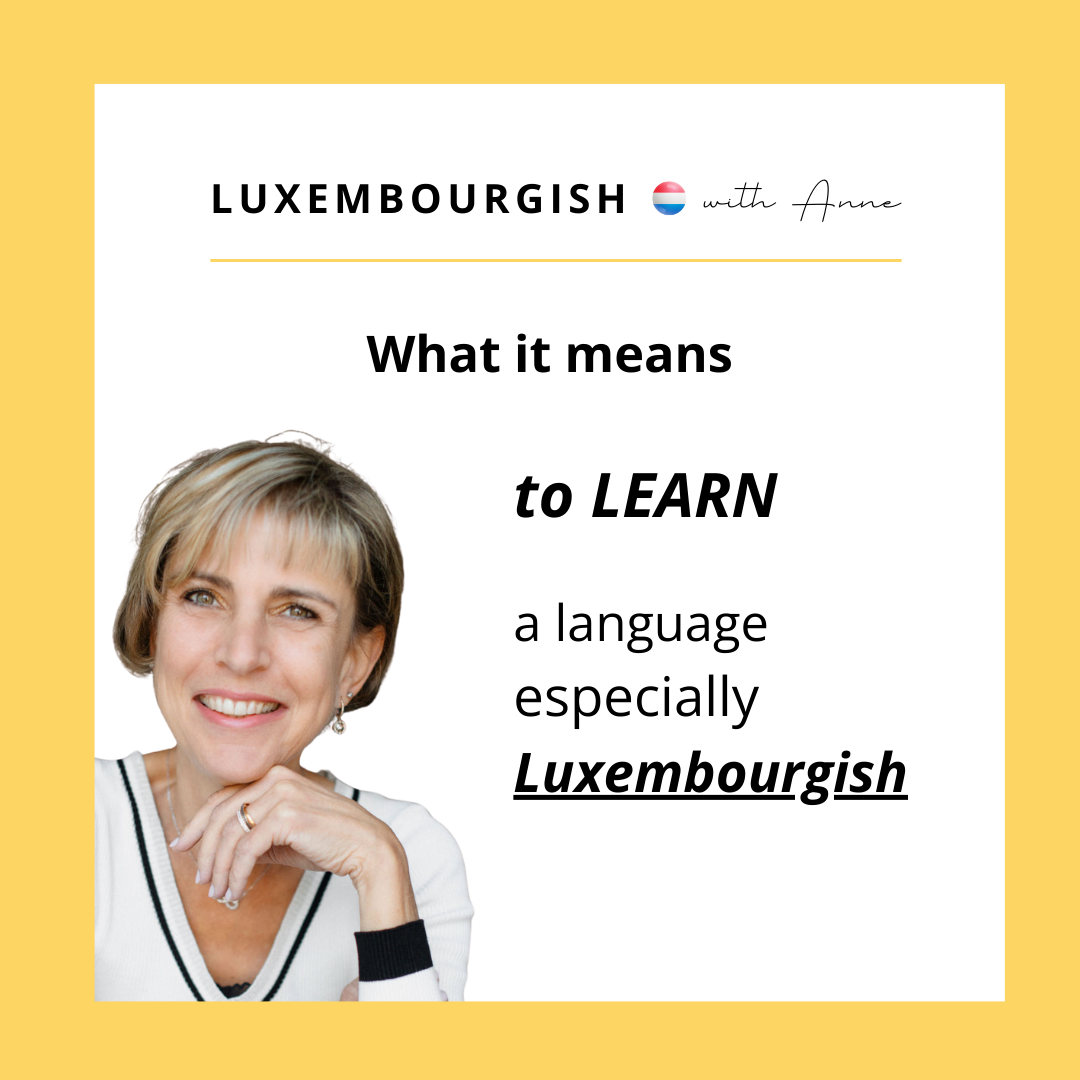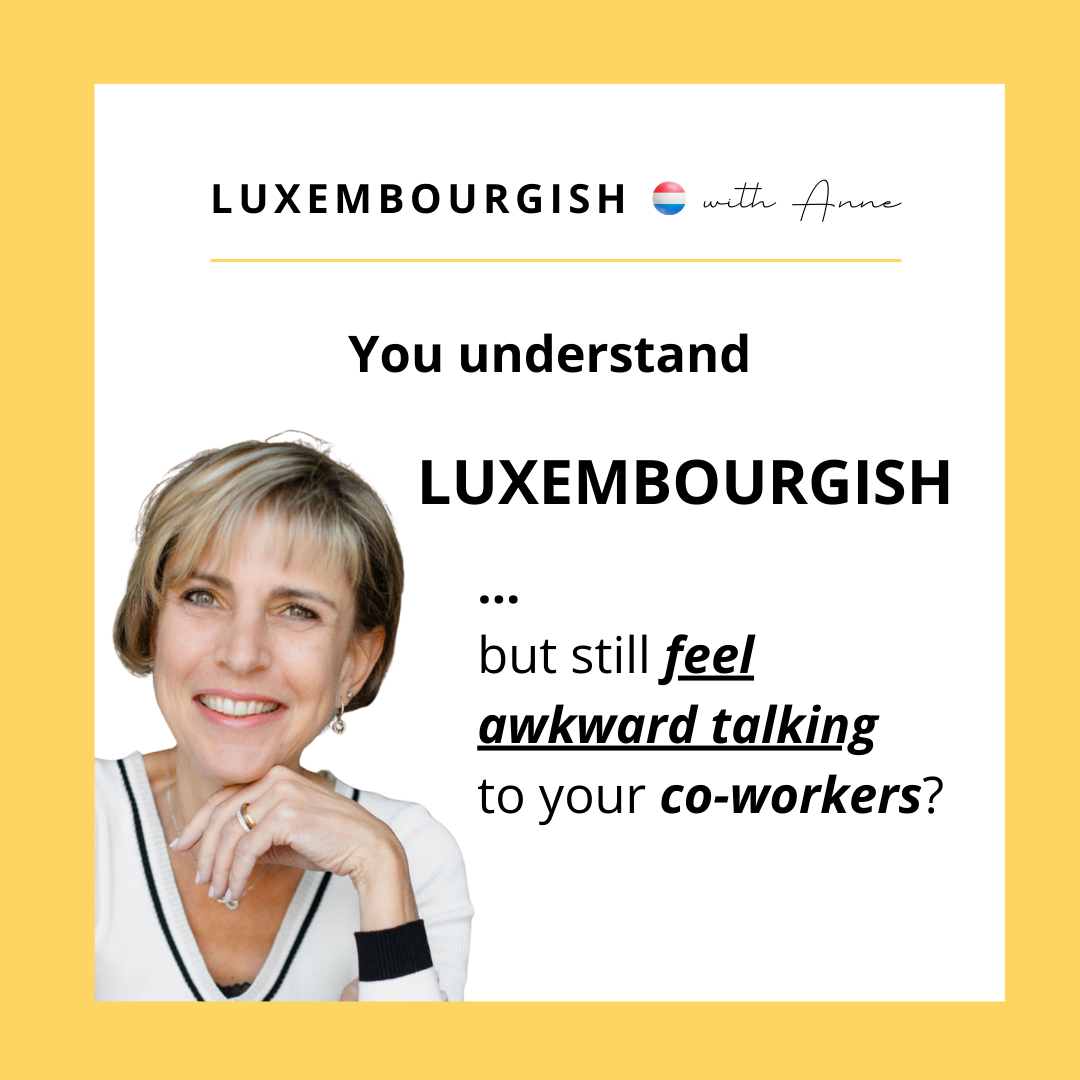In Luxembourgish the word wéi has several meanings and different usages. The first phrases you learn in your learning journey are: Wéi geet et? or Wéi heeschs du?
In these examples Wéi is a question word and translates into How. But this is only one meaning of this word.
So discover today the different meanings of “Wéi” in Luxembourgish – I will break down how this tricky word is used and understood in everyday language. And you’ll learn how “Wéi” works in real conversations — by putting it into practice with sample phrases & questions

Wéi - a question word
1. Wéi laang ….? – How long …?
- Wéi laang gees du gewéinlech lafen? – How long do you usually go running?
2. Wéi oft / dacks…? – How often …?
- Wéi oft / dacks gees du lafen? – How often do you go running?
3. Wéi eng / Wéi een ……? – Which …?
- Wéi eng Sprooche schwätzt Dir? – Which languages do you speak?
- Wéi een Dessert wëlls du gär? – Which dessert would you like?
4. Wéi vill ….? How much/many ….?
- Wéi vill kascht dat? – How much does this cost?
- Wéi vill Auer ass et? – What time is it?
I often hear my students use the word dann when comparing things / persons. But that’s not the correct word. In Luxembourgish we use the term wéi:
- méi kleng wéi – smaller than
- méi séier wéi – faster than
- esou flott wéi – as beautiful as
Learn all about the comparative form in this lesson.
Beispiller (examples)
- Mäin neie Brëll ass grad esou schéin wéi deen alen. – My new glasses are as beautiful as the old ones
- Dëse Coiffer ass besser wéi deen a mengem Quartier. – This hairdresser is better than the one in my area
- Den Zuch fir op Bréissel ass manner bequeem wéi dee fir op Paräis – The train to Brussel is less comfortable than the one to Paris.
- Wéi ech jonk war, sinn ech oft bei meng Boma an d’Vakanz gaang. – When I was young, I often went on vacation to my grand-mother.
- Wéi ech d’lescht Woch krank war, sinn ech doheem bliwwen. – When I was sick last week, I stayed at home.
Learn more about this meaning of wéi in my online course Luxembourgish Level B1.1
1. wéi hunn – to have a pain
- Ech hunn oft de Kapp wéi. – I often have a headache.
2. wéidoen – to hurt
- Wou deet et dir wéi? – Where does it hurt you?
- Mamma, de Pol huet mir wéigedoen . – Mum, Pol hurt me!
- Wéi kanns du nëmmen dat iessen. – How on earth can you eat this?
- Wéi kanns du nëmmen dat soen? – How on earth can you say that?
Du gleefs net, wéi gär ech Kéistaart iessen. – You can’t believe, how much (to what degree) I like to eat cheesecake.
Translate the following sentences into Luxembourgish
- My mother has a headache almost every day. Meng Mamm huet bal all Dag Kappwéi
- When we were on vacation, we had breakfast at 10 am. Wéi mir an der Vakanz waren, hu mir um 10 Auer moies Kaffi gedronk.
- How many hours a week do you (form) learn Luxembourgish? Wéi vill Stonnen pro Woch léiert Dir Lëtzebuergesch?
Want to speak Luxembourgish more confidently in everyday life?
Check out our Conversation Classes
small group classes of motivated learners designed to boost your confidence and fluency:
✅ A2 Level – Build strong foundations with everyday conversations
✅ B1 Level – Challenge yourself with real-life and workplace discussions
📥 Spots are limited—don’t miss your chance to grow and shine! Join the waitlist now and be the first to receive all the details:
👉 https://luxembourgishwithanne.lu/schwatz-mat-eis-luxembourgish-conversation-class/




